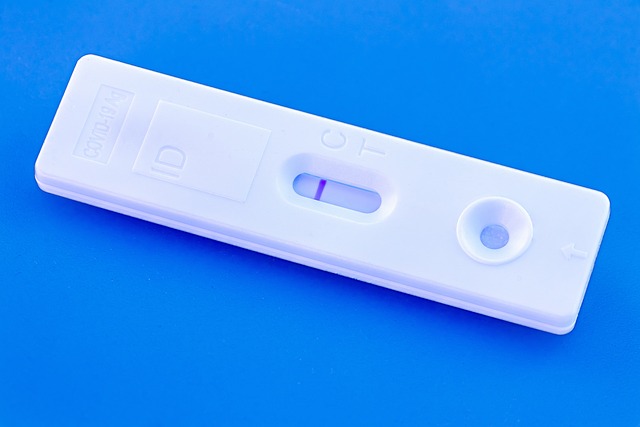The 'sunshine vitamin,' Vitamin D, plays a crucial role in maintaining overall health and wellness beyond its known benefits for bone health. It influences a wide array of biological processes and has been linked to improved immune function, a lower risk of certain cancers, and reduced prevalence of chronic diseases like diabetes, cardiovascular disease, and multiple sclerosis. In the UK, regular blood tests are a key part of healthcare, especially considering the reduced sunlight exposure during winter months that can affect vitamin D synthesis. The National Institute for Health and Care Excellence (NICE) recommends annual screening for Vitamin D levels in adults over 65, pregnant women, and individuals with dark skin to ensure proper nutritional levels. These tests are conducted through a simple blood sample and analyze serum vitamin D concentrations, helping to identify those at risk of deficiency-related conditions. The General Health Blood Test UK is pivotal in this regard, offering actionable insights for personalized healthcare advice. It is important to maintain optimal Vitamin D levels as defined by healthcare professionals; levels between 50 to 75 ng/ml are considered sufficient. Dietary and lifestyle adjustments or medical intervention may be necessary if results fall outside of this range. Sunlight exposure, along with a balanced diet including sources like fatty fish, fortified dairy products, and eggs, are essential components of Vitamin D maintenance. Regular monitoring through the General Health Blood Test UK is essential for managing your Vitamin D status effectively, ensuring you receive tailored advice from healthcare professionals to support your health.
Vitamin D plays a pivotal role in maintaining general health, extending beyond bone health to influence a spectrum of bodily functions. Recognizing its importance, understanding the process and significance of vitamin D levels testing in the UK becomes crucial for individuals aiming to monitor their wellness. This article delves into the essential aspects of vitamin D’s impact on overall health, elucidates the testing procedure within the UK healthcare system, and guides readers on interpreting test results to sustain optimal health. Join us as we explore the intersection of science and health for a well-rounded perspective on maintaining vitality through the power of blood tests.
- Understanding the Role of Vitamin D in Overall Wellness
- The Process and Significance of Vitamin D Levels Testing in the UK
- Interpreting Your Vitamin D Levels Test Results and Maintaining Optimal Health
Understanding the Role of Vitamin D in Overall Wellness

Vitamin D, often referred to as the ‘sunshine vitamin’, plays a pivotal role in maintaining overall wellness. This essential nutrient is not merely responsible for calcium absorption and bone health; it also influences a wide array of biological processes that contribute to general health. Adequate levels of Vitamin D have been linked to improved immune function, reduced risk of certain cancers, and decreased incidence of chronic diseases such as diabetes, cardiovascular disease, and multiple sclerosis. Regular blood tests in the UK provide a reliable means to assess an individual’s Vitamin D status, which is crucial for personalized healthcare strategies aimed at optimizing health outcomes. The General Health Blood Test UK includes measurements of Vitamin D levels, allowing healthcare professionals to tailor dietary recommendations and lifestyle advice to support wellness holistically. Understanding one’s Vitamin D levels through such tests enables individuals to make informed decisions about their health, ensuring they can maintain optimal levels for the well-being of their bones and a myriad of other health benefits.
The Process and Significance of Vitamin D Levels Testing in the UK

In the UK, vitamin D levels testing is an integral component of maintaining overall wellness, as it is a nation where sunlight exposure, particularly during winter months, may be limited. This general health blood test is readily available and serves as a crucial indicator of an individual’s nutritional status. The process begins with a healthcare provider taking a blood sample from a patient’s arm. This sample is then sent to a laboratory for analysis, where specific serum vitamin D concentrations are measured. In the UK, the National Institute for Health and Care Excellence (NICE) guidelines recommend that adults aged 65 years and over, as well as vulnerable groups including pregnant women and those with dark skin, should consider having their vitamin D levels tested annually, especially during autumn and winter. This is because vitamin D plays a significant role in bone health by regulating calcium and phosphate metabolism and impacts the immune system’s functioning.
The significance of vitamin D testing extends beyond skeletal health; it encompasses a broad spectrum of wellness, including mood regulation and immune system support. Adequate levels of vitamin D have been associated with a reduced risk of multiple sclerosis and type 1 and 2 diabetes. The test results inform healthcare providers about the patient’s need for supplementation to prevent deficiency-related conditions such as rickets in children and osteomalacia in adults, which can lead to bone pain and muscle weakness. Thus, vitamin D levels testing is a vital health screening tool in the UK, contributing to the early detection and prevention of health issues associated with its deficiency. It empowers both healthcare providers and patients with actionable insights to optimise health outcomes and promote general well-being.
Interpreting Your Vitamin D Levels Test Results and Maintaining Optimal Health

Understanding your Vitamin D levels through a blood test is a crucial step in assessing your overall wellness, as this nutrient plays a significant role in maintaining bone health, regulating cell growth, and supporting the immune system. Upon receiving your Vitamin D levels test results from a general health blood test UK, it’s essential to interpret them within the context of the reference ranges provided by healthcare professionals. Typically, serum levels of 25-hydroxyvitamin D (25(OH)D) between 50 to 75 nanograms per millilitre (ng/ml) are considered sufficient for optimal health. Levels below this range may indicate a deficiency, potentially leading to conditions such as osteomalacia or increased susceptibility to infections. Conversely, levels above 125 ng/ml may suggest vitamin D toxicity. It’s advisable to consult with a healthcare provider for personalized advice based on your results and health status.
Maintaining optimal Vitamin D levels involves more than just dietary intake or supplementation; it also includes lifestyle factors and sun exposure. Regular exercise, a balanced diet rich in fatty fish, fortified dairy products, and eggs, as well as avoiding excessive alcohol consumption, can contribute positively to your Vitamin D status. Additionally, safe sun exposure, where the skin is exposed to sunlight without burning, can help your body produce vitamin D. It’s important to balance sunlight exposure with sun protection measures to prevent skin damage. Regular monitoring of your Vitamin D levels through general health blood tests UK can help ensure that your efforts are effective and that you maintain the levels necessary for good health. Always discuss any concerns or questions about your Vitamin D levels with a healthcare professional, as they can offer tailored guidance for your individual health needs.
In conclusion, maintaining optimal levels of Vitamin D is integral to one’s general health and wellbeing. The UK’s National Health Service (NHS) offers Vitamin D blood tests, which are pivotal in assessing one’s status and guiding dietary or lifestyle adjustments to bolster overall health. Regular monitoring through a General Health Blood Test UK can ensure that individuals maintain the necessary levels of this vital nutrient, thereby supporting bone health, immune function, and potentially reducing the risk of various chronic diseases. It is advisable for individuals to discuss their Vitamin D test results with healthcare providers to tailor personalised wellness strategies. By understanding the importance of Vitamin D and utilizing available testing resources, UK residents can proactively manage their health and wellbeing in a holistic manner.
